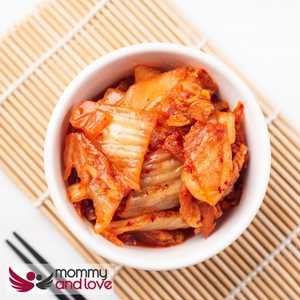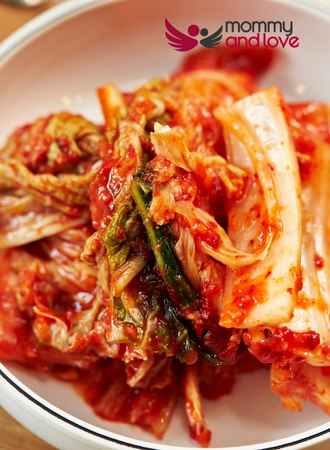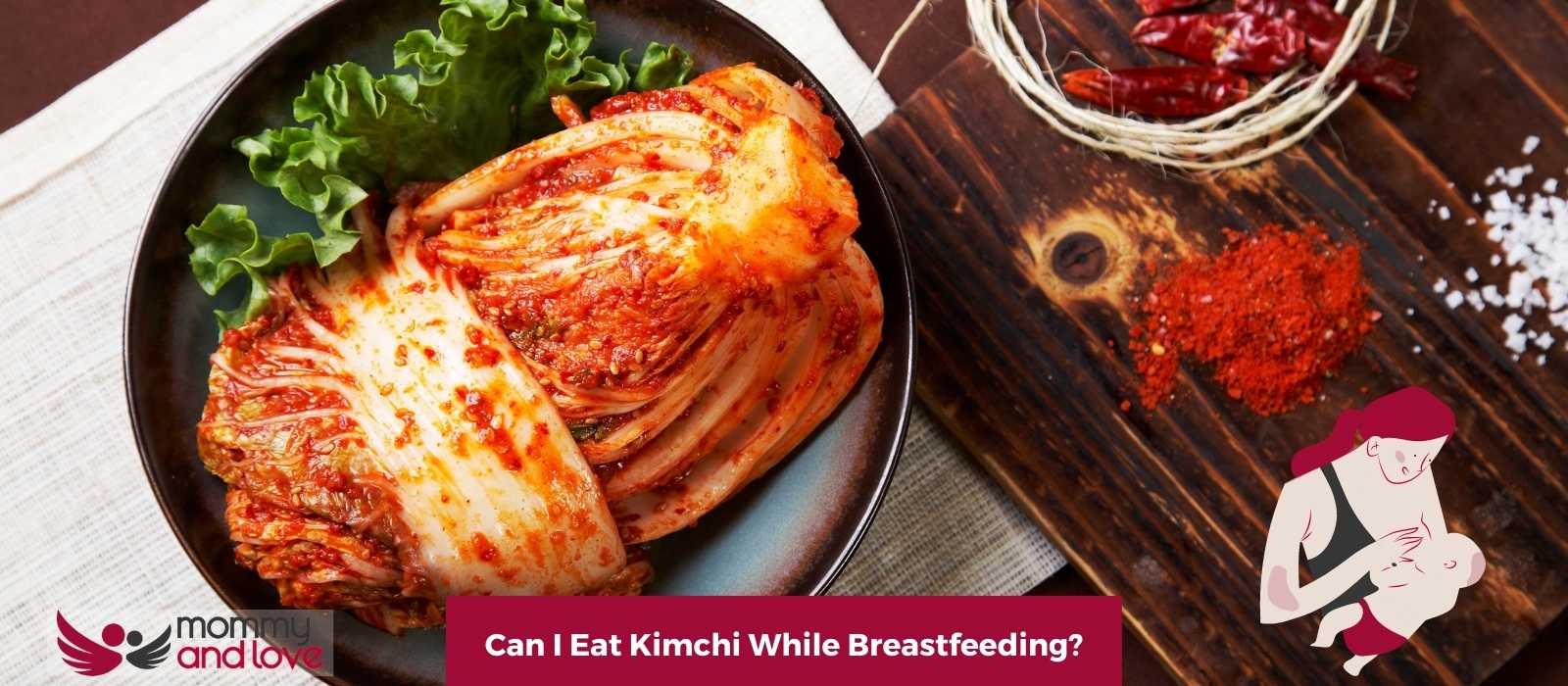When you’re breastfeeding, it’s important to be mindful of what you eat.
There are some foods that can be harmful to your baby, and others that are safe to eat. If you’re curious about kimchi, read on to learn more about whether or not it’s safe to eat while breastfeeding.
While kimchi is generally safe to eat while breastfeeding, it’s important to be mindful of how much you eat. Too much kimchi, like eating horseradish when breastfeeding can cause gas and bloating, which can be uncomfortable for both you and your baby.
So if you’re looking for a healthy, spicy snack to eat while breastfeeding, kimchi is a great option. Just be sure to eat in moderation to avoid any discomfort.
Affiliate Disclaimer: As an Affiliate, we earn from qualifying purchases.
What is kimchi?

Kimchi is a traditional Korean dish made of fermented cabbage and other vegetables. It’s a healthy food that is high in fiber and vitamins, and it has a spicy flavor that many people enjoy.
Kimchi is a classic Korean spicy food whose ingredients vary but typically contain veggies, garlic, ginger, chili peppers, salt, and fish sauce.
The vegetables are pickled and fermented, which was traditionally done to preserve them for the winter months.
Cabbage is the most commonly used vegetable, but carrots, radish, cucumber, and scallions are all regularly used.
What are the benefits of eating kimchi while breastfeeding?

There are no specific health and breastfeed benefits of eating kimchi for breastfeeding mothers and their infants, however unlike nopales which should not be eaten when breastfeeding, you can eat kimchi.
But it is generally considered a healthy food even though it has a spicy taste. Certain foods should be part of the maternal diet.
It is a nutrient-dense food that has enough protein but is low in calories.
Chinese cabbage, one of the key ingredients, contains vitamins A and C, at least ten distinct minerals, and over 34 amino acids on its own.
Many green vegetables are high in nutrients such as vitamin K and riboflavin. Because it frequently contains various green vegetables, such as cabbage, celery, and spinach, it is a good source of these nutrients.
Vitamin K is essential for various body activities, including bone metabolism and blood clotting, whereas riboflavin aids in the regulation of energy production, cellular growth, and metabolism.
Kimchi is a fermented cuisine that is high in probiotics. It contains the same lactobacilli bacteria found in yogurt and other fermented dairy products.
Consuming the “good bacteria” can help you affect and maintain a healthy digestive system.
Probiotics present in fermented foods can help lessen the negative symptoms of many gastrointestinal illnesses, including IBS and colon inflammation.
Maintaining a healthy gut flora is essential for good health.
What are the issues with eating kimchi?

The bacteria used to ferment kimchi are not harmful to human health.
The fermenting process, however, can cause food illness if it is not properly made or kept.
As a result, persons with weakened immune systems should avoid consuming it or other fermented foods.
If you are not used to fermented foods or a high fiber content in your diet, it may induce some unpleasant side effects such as gas and bloat in breastfeeding infants as well.
How much kimchi can I eat when breastfeeding?

Breastfeeding moms can consume a cup of kimchi which contains around 23 calories, 4 grams of carbohydrates, less than a gram of fat, 2 grams of fiber and sugar.
For extra carbohydrates breastfeeding moms can eat cup of noodles.
Does kimchi affect breast milk supply?
Kimchi is not known to affect a nursing mother’s milk supply.
Many people say that cabbage, the main ingredient, can slow down breast milk production.
This might be true to some extent however it should be worth noting that each body reacts differently to different foods.
Some nursing moms might experience a decrease in their breastmilk supply after eating kimchi, but others might not.
If you are looking for foods to boost your breast milk supply read our guide to the best lactating foods, or try a lactation tea.
Earth Mama Milkmaid Lactation Tea
- 100% ORGANIC.
- Tasty blend of organic herbs including organic fenugreek, fennel, milk thistle, and other galactagogues.
- NON-GMO
- Naturally caffeine-free herbal tea.
Is it okay to eat spicy foods while breastfeeding?

Kimchi is a spicy food but has a delicious taste. So you must be wondering if you can eat kimchi or spicy foods while breastfeeding.
The answer is yes. You can consume your favorite spicy foods while breastfeeding.
There is no evidence that spicy foods should be avoided for the sake of your infant, either during pregnancy or breastfeeding.
In fact, research suggests that babies who are exposed to a diversity of strong flavors throughout pregnancy and through breast milk after birth may be more open to adding a variety of flavors into their own healthy diet once they start eating solids.
Can a baby have allergies to kimchi?
Yes, kimchi consumption can result in a variety of histamine intolerance symptoms in breastfeeding infants.
Your baby might experience itching, headaches or migraines, runny nose (rhinitis), eye redness, diaper rashes, exhaustion, hives, and digestive problems such as diarrhea, nausea, and vomiting.
Take Away on Kimchi for the Breastfeeding Mother

So, is kimchi okay to eat while breast feeding? The answer is yes.
Both you and your baby can enjoy it. It is a nutrient-rich food that can provide many nutritional advantages for both the mother and baby.
However, it’s important to listen to your body and pay attention to any negative symptoms you might experience after you eat kimchi.
Not only that, but you should also look for signs of any reaction such as diaper rashes in your child or baby.
If you’re not used to consuming fermented foods, start with a small amount and increase gradually as your body becomes more tolerant.
As always, consult with your doctor or medical professional if you have any concerns.

This article was written by Sandra Baker – full time writer and the mother of four amazing kids (including twins!)
She’s also a breastfeeding counselor and has spent years helping new parents learn how to care for their children. When she’s not writing or caring for her children, Sandra likes to spend time reading and taking walks with her husband.








